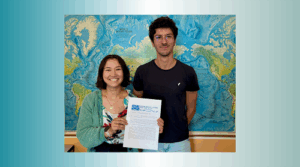Soutenance de HDR
Gonéri Le Cozannet (BRGM)
LMD
Sea-level rise and coastal risks: marine flooding and coastal erosion
Résumé
Coastal hazards such as flooding, erosion and salinization are a major concern for coastal zones management. In fact, projections suggest that by the middle of the 21st century, approximately 1 billion persons will be exposed to these hazards globally due to ongoing sea-level rise and coastal development. Confronted with this challenge, coastal managers and researchers are asking the same questions: (1) are we already able to attribute specific coastal impacts to sea-level rise? (2) how, where and when should climate change and sea-level rise impacts materialize? Responding to these two questions is generally difficult due to the limited accuracy of coastal hazard and risk models. This leads to a third question: how can we evaluate and manage uncertainties in sea-level rise and coastal impact projections?
Within my research, together with many colleagues, I adapted, developed and applied methods to address these three questions. This includes approaches to detect and eventually attribute impacts of sea-level rise as well as probabilistic methods to propagate uncertainties from coastal forcing (such as sea levels, waves and surges) to coastal impacts such as flooding and erosion. Yet, probabilistic approaches have a limited ability to capture future coastal risks because the probability of an early ice-sheet collapse during the late 21st century or early 22nd century is unknown. To model this deep uncertainty, we proposed to go beyond the use of single probabilistic distributions and use extraprobabilitic approaches to represent future sea-level changes and propagate them across coastal impacts models and eventually support some coastal adaptation decisions.
Over the coming years, it is clear that present-day and future coastal risk assessments will become more precise, or at least that the assumptions of these models will be clearly set out. For example, the CoCliCo project, which I am coordinating, aims at developing such broad-scale projections of coastal flooding in Europe. However, by limiting ourselves to delivering information on future risks without assessing critically adaptation options, we may be missing the most important aspect of adaptation. Indeed, the challenge in coastal zones is not limited to protecting against coastal hazards and sea-level rise. It rather consists in achieving what the IPCC calls climate resilient development, that is, mitigating climate change, adapting to committed impacts of climate change, reducing biodiversity losses and achieving the 17 sustainable development goals adopted by United Nation members in 2015. As part of my future research projects, I propose to contribute exploring pathways toward coastal resilient development.
Informations supplémentaires
Le manuscript est accessible ici : https://filesender.renater.fr/?s=download&token=de097680-1b20-4d85-8337-966483cfec98
Lieu
ENS – salle Claude Froidevaux – E314
24, rue Lhomond 75005 PARIS
Composition du jury
- Caroline Katsman (Université de Delft), Rapportrice
- Catherine Meur-Ferec (Université de Brest), Rapportrice
- Detlef Stammer (Université de Hambourg), Rapporteur
- Laurent Bopp (École normale supérieure – PSL), Examinateur
- Michel Benoit (EDF), Examinateur
- Gilles Grandjean (BRGM), Examinateur
- Sabrina Speich (École normale supérieure – PSL), Examinateur






